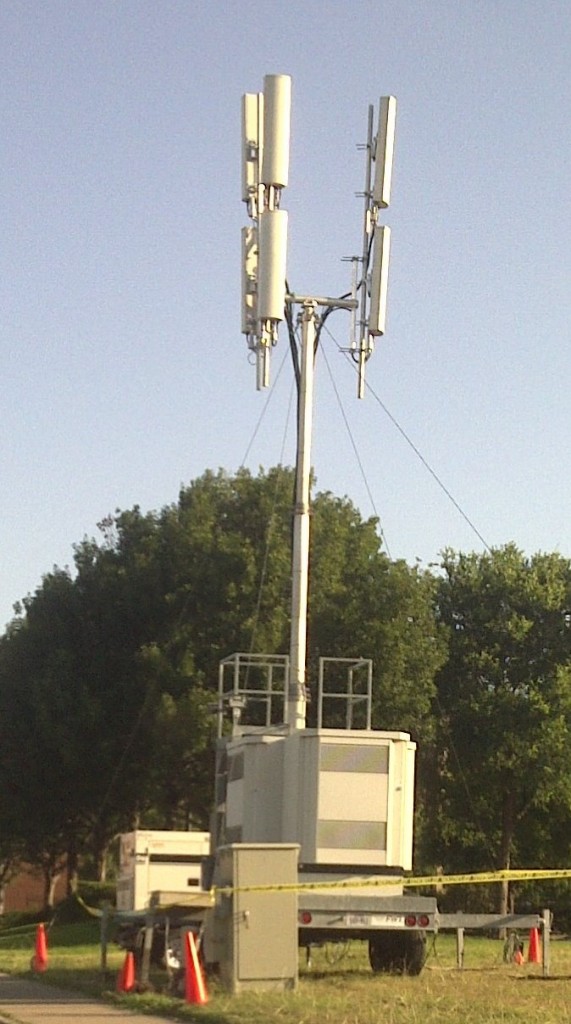 Verizon Wireless customers and public safety personnel are upset that the cell phone company was caught unprepared after a rural roaming agreement with AT&T expired at the end of June, leaving police officers without communications and others with no way to reach 911.
Verizon Wireless customers and public safety personnel are upset that the cell phone company was caught unprepared after a rural roaming agreement with AT&T expired at the end of June, leaving police officers without communications and others with no way to reach 911.
AT&T no longer permits Verizon Wireless customers to roam on its acquired former Alltel network, which has dramatically reduced service in Geraldine, Absarokee, Ft. Benton, Browning, Harlem, Evaro, Cascade, Stanford, Lincoln, Ennis, Virginia City, and Great Falls.
Lincoln resident Gayle Steinch is living with the result of that business decision. She has a single bar of service on her Verizon Wireless cellphone at her house. It is her only phone — she dropped landline service in 2007.
“And I live a half a block off the main street,” she told the Great Falls Tribune.

Verizon’s road to no bars in rural Montana.
Capt. Gary Becker of the Montana Highway Patrol told The Montana Standard troopers in the area haven’t been able to communicate on their cell phones or their computers installed in their cruisers since the roaming agreement expired. Becker said police have to travel at least 30 miles to get any usable reception from Verizon.
Jessica Constantine, manager of the AT&T Elite Wireless store in Butte, said AT&T “had a roaming agreement with Verizon and we allowed them to use our towers for three years. The contract is over.”
And with it, Verizon Wireless network reception.
The agreement was part of a deal between AT&T and Verizon over Verizon’s 2010 purchase of Alltel. Federal regulators required Verizon to divest itself of certain Alltel territories for competitive reasons, transferring those customers to AT&T. As a result, territories that used to be well-served by Alltel’s CDMA network are now being converted by AT&T to GSM and data service, exposing Verizon’s sparse home cellular coverage in several parts of the state.
“They had years to prepare for AT&T switching off Alltel’s old CDMA service Verizon was dependent on, and Verizon did little to nothing,” said Jim Brown. “The Verizon person I spoke with told me it did not make sense to build a network out here because the only thing it would serve are crows. But they promised they would at least try to equal the coverage Alltel used to give us. That never happened and still isn’t.”
Verizon denied there was a major service loss in rural Montana. Bob Kelley, corporate spokesperson for Verizon, said that the change in service was planned and its impact would be limited to “less than optimal” service. He confirmed there were no unexpected outages.
 After negative media coverage reported Verizon’s inability to provide quality cell service in rural Montana, the company agreed to temporarily deploy portable cell towers to improve coverage.
After negative media coverage reported Verizon’s inability to provide quality cell service in rural Montana, the company agreed to temporarily deploy portable cell towers to improve coverage.
The “COWs”— cellphone towers on wheels — are stationed in Lincoln, Virginia City, Lima, Broadview, between Absarokee-Fishtail, as well as in Jackson, mostly meeting the needs of law enforcement monitoring the Rainbow Family Gathering last week. Verizon is also deploying repeaters that can re-broadcast signals and enhance range, as well as add coverage to existing permanent facilities. The company is planning on adding permanent towers this week in Marion and Tarkio. Additional permanent towers are also planned for Lincoln and Columbus by the end of August.
That cannot come soon enough for some customers.

Cell tower on wheels
“Verizon brought up this 40-foot [temporary] antenna, but you really can only get service on it on Main Street,” said Steinch, the manager of The Bootlegger, a Lincoln bar and restaurant. “We had a guy in here this morning who has a towing company who missed out on an $1,800 job because his cellphone didn’t get the call.”
Service has deteriorated so badly in rural Montana, some AT&T stores had lines of soon-to-be-ex-Verizon customers snaking out the door, and at least one reported it was completely sold out of cell phones and wireless broadband devices.
“Dillon sold out of cell phones yesterday,” said Constantine, “because everybody in Lima who was using Verizon just flooded the Dillon store.”
Verizon subscriber John Ulias found his cellphone useless at his cabin in the Little Belt, as did many of his neighbors in that area.
Although Verizon told Ulias and the Tribune subscribers should still be getting service in the Little Belts area from a Verizon antenna in Stanford, Ulias said that isn’t the case.
“I gave the Verizon representative the cell numbers of two of my Little Belt neighbors after he told me we should be getting service up there,” Ulias told the newspaper. “The guy called me back and said his calls went straight to their voicemail.”
Montana residents affected by the disruption of Verizon Wireless service seeking to file a complaint should contact the Office of Consumer Protection at the Montana Department of Justice by emailing: [email protected], faxing 406-444-9680 or calling 800-481-6896 or 406-444-4500.
For customers planning to switch carriers because of reception issues in Montana, Verizon is waiving early termination fees. For those customers the company can convince to stay, discounted service will be available along with discounts on a Verizon Network Extender, a portable in-home mini-cell tower that interfaces with a home broadband connection. To pursue either option, prepaid consumers should call Verizon Customer Service at 1-888-294-6804; all others should call 1-800-922-0204.
In New York and New Jersey, Verizon is attempting to convince some rural residents to abandon their landline service in favor of Voice Link, which relies entirely on Verizon Wireless reception.
“I have one word for my friends back east: don’t,” said Brown.
![[Image: The Verge]](https://stopthecap.com/wp-content/uploads/2013/07/t-mobile-jump.jpg)


 Subscribe
Subscribe Verizon Wireless customers and public safety personnel are upset that the cell phone company was caught unprepared after a rural roaming agreement with AT&T expired at the end of June, leaving police officers without communications and others with no way to reach 911.
Verizon Wireless customers and public safety personnel are upset that the cell phone company was caught unprepared after a rural roaming agreement with AT&T expired at the end of June, leaving police officers without communications and others with no way to reach 911.
 After negative media coverage reported Verizon’s inability to provide quality cell service in rural Montana, the company agreed to temporarily deploy portable cell towers to improve coverage.
After negative media coverage reported Verizon’s inability to provide quality cell service in rural Montana, the company agreed to temporarily deploy portable cell towers to improve coverage.
 Google Fiber may not be coming to a Kansas City apartment complex near you.
Google Fiber may not be coming to a Kansas City apartment complex near you. “I don’t know many apartment complexes that have $100,000 in the bank just waiting to be spent,” said Jon Gambill, CRES Management information technology director.
“I don’t know many apartment complexes that have $100,000 in the bank just waiting to be spent,” said Jon Gambill, CRES Management information technology director. Time Warner Cable won’t engage in an expensive bidding war for ownership of Hulu so it is trying to convince the online video venture’s current owners not to sell.
Time Warner Cable won’t engage in an expensive bidding war for ownership of Hulu so it is trying to convince the online video venture’s current owners not to sell. Hulu’s new owners could continue to offer the service much the same way it is provided today, with a free and pay version. But most expect the new owners will throw up a programming “pay wall,” requiring users to authenticate themselves as a pay television customer before they can watch Hulu programming. If Time Warner Cable acquired a minority interest and the current owners stayed in place, Time Warner Cable TV customers could benefit from free access to certain premium Hulu content, now sold to others for $8 a month. That premium content would presumably be available to U-verse customers if AT&T emerges the top bidder, or DirecTV could offer Hulu to satellite subscribers to better compete with cable companies’ on-demand offerings.
Hulu’s new owners could continue to offer the service much the same way it is provided today, with a free and pay version. But most expect the new owners will throw up a programming “pay wall,” requiring users to authenticate themselves as a pay television customer before they can watch Hulu programming. If Time Warner Cable acquired a minority interest and the current owners stayed in place, Time Warner Cable TV customers could benefit from free access to certain premium Hulu content, now sold to others for $8 a month. That premium content would presumably be available to U-verse customers if AT&T emerges the top bidder, or DirecTV could offer Hulu to satellite subscribers to better compete with cable companies’ on-demand offerings. The Los Angeles Times reports that pay TV distributors are in a rush to make deals, not only to offer more viewing options for customers, but to potentially get rid of expensive and cumbersome set-top boxes.
The Los Angeles Times reports that pay TV distributors are in a rush to make deals, not only to offer more viewing options for customers, but to potentially get rid of expensive and cumbersome set-top boxes.

